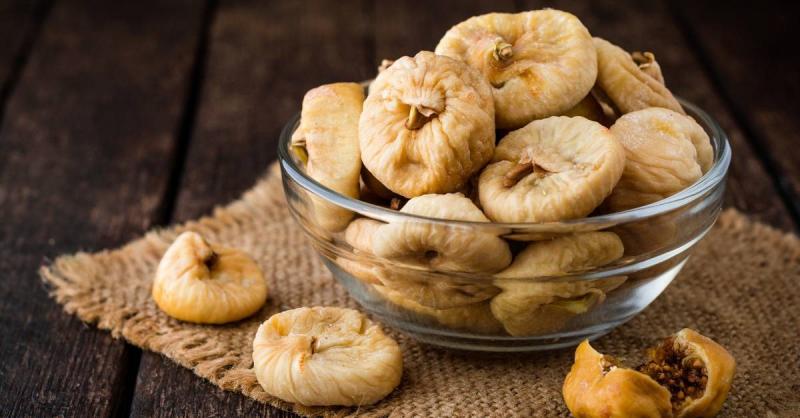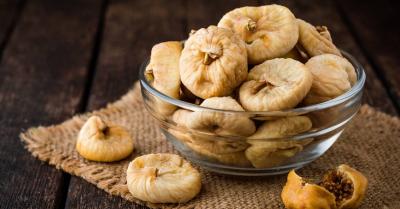Dried figs are a nutritional treasure rich in essential nutrients for health. While fresh figs may spoil after just two weeks, dried figs are available year-round and have a longer shelf life. Many studies indicate that figs possess important health benefits, including anti-inflammatory and antioxidant properties, reducing fat levels, and protecting cells, which may play a role in cancer prevention, according to “Web الطب.” Here are the key health benefits of dried figs:
**Blood Pressure Control**
Due to their high potassium content, dried figs may help lower high blood pressure, as potassium helps maintain the electrolyte balance in the body, especially when consuming large amounts of sodium.
**Digestive Health**
Dried figs contain a good amount of fiber alongside beneficial nutrients for good bacteria in the intestines, which may aid in maintaining digestive health.
**Bone Density Maintenance**
Dried figs are a good source of elements that significantly strengthen bones and maintain their density, including potassium and calcium. As people age, the body takes some of the necessary elements from the bones, reducing bone strength and density, potentially leading to joint pain and increased osteoporosis risk. Consuming certain foods, such as dried figs, may help slow down these processes, keeping bones healthy and strong longer.
**Good Source of Iron**
The body requires iron to efficiently transport oxygen through the bloodstream. Iron deficiency reduces the oxygen supply to the body, leading to fatigue and other unpleasant symptoms. Dried figs can provide a good portion of the daily iron requirement, with half a cup containing 1.5 mg of iron.
**Beneficial for Diabetics**
The fiber content in dried figs makes them a good food option for regulating glucose and insulin release in the body, along with properties that may help reduce blood glucose levels and maintain liver health. However, due to their high sugar concentration, diabetics should be cautious about consuming them in large amounts.
**Cholesterol Control**
Several studies have shown that the high fiber content in dried figs helps reduce cholesterol levels accumulated in blood vessels. Regularly consuming dried figs in your diet may help protect against heart disease and fat accumulation in the blood vessels.
**Chronic Disease Prevention**
Dried figs can supply the body with essential minerals and vitamins, the deficiency of which can lead to inflammation and chronic diseases, thereby potentially helping to prevent such conditions.
**Skin Care and Improvement**
Dried figs are high in antioxidants, vitamin E, and vitamin A, which are important nutrients. They may help provide a radiant appearance and improve skin elasticity, acting as antioxidants that protect against the negative effects of free radicals and reduce the chances of signs of aging, such as wrinkles. Additionally, the high antioxidant content in dried figs makes them an important factor in protecting against diseases caused by free radicals, such as rheumatoid arthritis and heart disease.
**Nutritional Components**
Dried figs have higher calorie content compared to fresh figs, along with many essential nutrients, some of which are at higher concentrations than in fresh figs. Key nutrients include:
- Carbohydrates, including sugars.
- Fiber.
- Vitamins and minerals, including calcium, vitamin K, vitamin A, potassium, iron, and magnesium.




